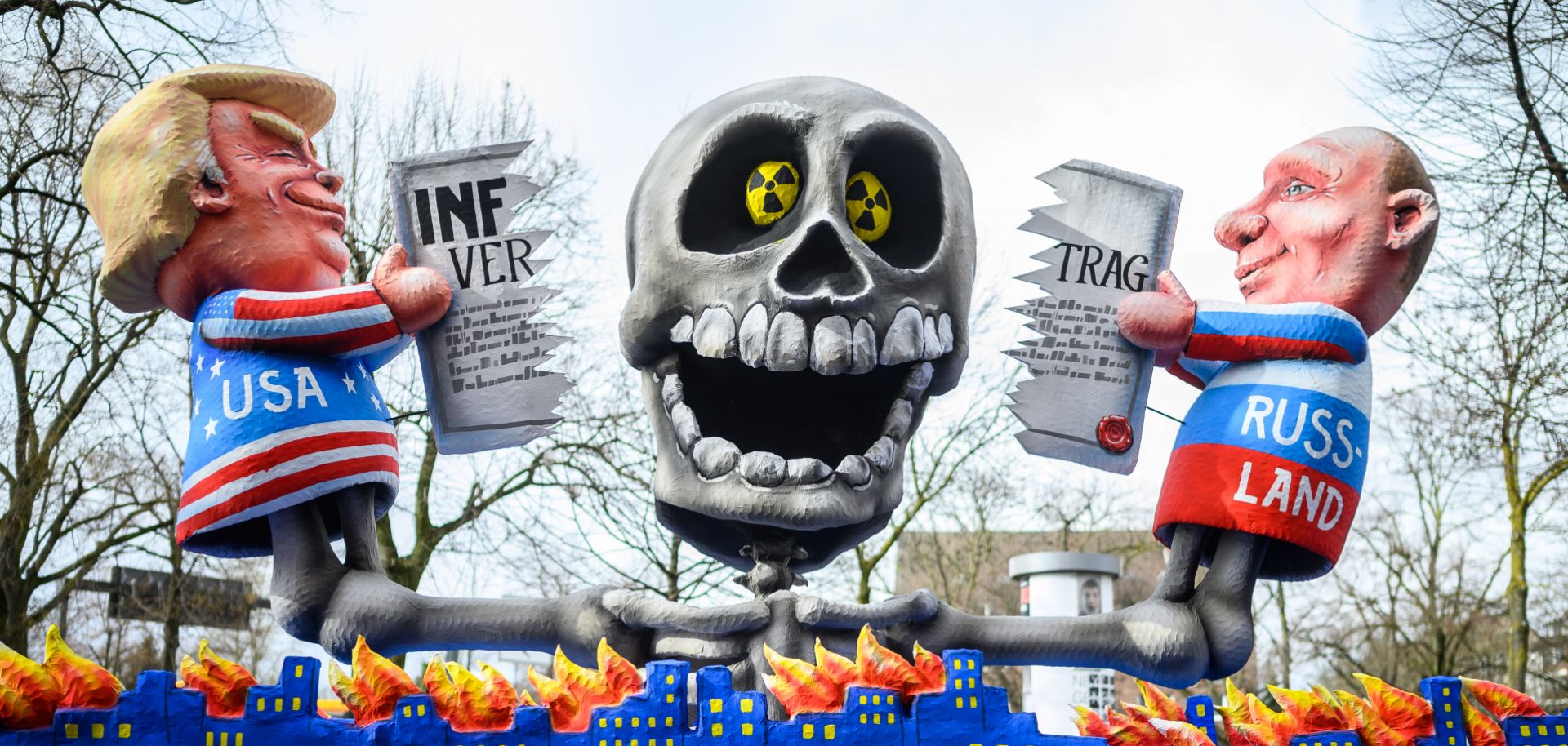GLOBAL PERSPECTIVES
The Line Between Conflict and Stability in Great Power Competition

Apr 22, 2019 | 09:15 GMT

A parade float is seen in Dusseldorf, Germany. More countries will become theaters of conflict as the great powers increasingly compete. Conflict will deepen in some countries where it already exists. In both cases, instability will grow.
(LUKAS SCHULZE/Getty Images)
Highlights
- With the U.S. strategic emphasis moving from counterterrorism to competition with China and Russia, the nature of U.S. engagement is changing again.
- Confrontation between the United States, China and Russia will deepen in many countries, with the great powers relying on proxies to wage conflict short of war.
- The use of proxies will mitigate the potential for direct conflict between the great powers, but the competition has profound implications for the stability of nations.
Subscribe Now
SubscribeAlready have an account?
